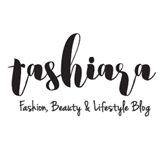Understanding your skin type: how to choose the right skincare products

Selecting the right skincare products can be a daunting task, especially with the myriad of options available in the market. The key to building an effective skincare routine lies in understanding your skin type. By knowing whether you have dry, oily, combination, sensitive, or normal skin, you can make informed decisions that will enhance your skin’s health and appearance. This article will guide you through the process of identifying your skin type and choosing the best products to suit your specific needs.
1. Identifying Your Skin Type
Before diving into product selection, it’s crucial to understand the different skin types and how to identify your own. Here’s a breakdown of the primary skin types:
-
Dry Skin: Characterised by a lack of moisture, dry skin often feels tight, rough, and may appear flaky. Those with dry skin typically have smaller pores and are more prone to irritation, redness, and fine lines.
-
Oily Skin: Oily skin is marked by an overproduction of sebum, leading to a shiny complexion, particularly in the T-zone (forehead, nose, and chin). Enlarged pores, blackheads, and acne are common concerns for those with oily skin.
-
Combination Skin: This skin type features both oily and dry areas, with the T-zone usually being oily while the cheeks remain dry or normal. Combination skin can be challenging to manage as it requires a balanced approach to skincare.
-
Sensitive Skin: Sensitive skin is prone to reactions such as redness, itching, and burning. It is often triggered by certain ingredients, environmental factors, or even stress.
-
Normal Skin: Normal skin is well-balanced, with neither too much oil nor too little moisture. It is generally free from severe blemishes, with a smooth, even texture.
To determine your skin type, observe your skin’s behaviour throughout the day. Pay attention to how your skin feels in the morning, midday, and evening, and note any changes after cleansing or applying products.
2. Choosing the Right Skincare Products for Your Skin Type
Once you’ve identified your skin type, you can start selecting products that cater to its specific needs. Below are tailored recommendations for each skin type:
a) Dry Skin: Nourishment and Hydration
For dry skin, the goal is to replenish moisture and strengthen the skin barrier. Look for products that are rich in hydrating ingredients such as hyaluronic acid, glycerine, and ceramides. Cream-based cleansers and thick moisturisers are ideal, as they help to lock in moisture. Avoid harsh exfoliants and alcohol-based products, which can further strip the skin of its natural oils.
Product Recommendations:
- Cleanser: A gentle, hydrating cream cleanser
- Moisturiser: A rich, emollient cream with ceramides
- Serum: Hyaluronic acid-based serum for deep hydration
b) Oily Skin: Balancing and Clarifying
Oily skin requires products that control excess sebum production while maintaining hydration. Gel-based cleansers with salicylic acid are effective in keeping pores clear and reducing acne. Lightweight, oil-free moisturisers and mattifying products can help keep shine under control without clogging pores.
Product Recommendations:
- Cleanser: Gel cleanser with salicylic acid
- Moisturiser: Lightweight, oil-free gel moisturiser
- Serum: Niacinamide serum to regulate oil production
c) Combination Skin: Balancing Multiple Needs
Combination skin needs a versatile approach. You may need to use different products on different areas of your face. For example, a mattifying toner for the T-zone and a hydrating serum for the drier areas. Opt for products that are lightweight and non-comedogenic to prevent pore blockage.
Product Recommendations:
- Cleanser: Gentle foaming cleanser suitable for all areas
- Moisturiser: Lightweight, non-comedogenic moisturiser
- Serum: A balancing serum with hyaluronic acid and niacinamide
d) Sensitive Skin: Soothing and Protecting
Sensitive skin benefits from products that are soothing, free from harsh chemicals, fragrances, and dyes. Look for products with calming ingredients such as aloe vera, chamomile, and oat extract. Always patch test new products to avoid potential reactions.
Product Recommendations:
- Cleanser: Fragrance-free, soothing cream cleanser
- Moisturiser: Calming moisturiser with aloe vera or oat extract
- Serum: A serum with soothing ingredients like niacinamide or chamomile
e) Normal Skin: Maintaining Balance
For normal skin, the goal is to maintain the skin’s natural balance. A simple skincare routine with a gentle cleanser, a light moisturiser, and a broad-spectrum sunscreen is usually sufficient. Incorporating a vitamin C serum can help maintain an even skin tone and prevent signs of ageing.
Product Recommendations:
- Cleanser: Gentle, non-stripping cleanser
- Moisturiser: Lightweight, hydrating moisturiser
- Serum: Vitamin C serum for brightening and protection
3. Understanding Ingredients: What to Look For and Avoid
Regardless of your skin type, understanding the ingredients in your skincare products is essential. Here are some key ingredients to consider:
- Hyaluronic Acid: Excellent for hydration and suitable for all skin types.
- Niacinamide: A versatile ingredient that helps with oil control, hydration, and skin barrier function.
- Salicylic Acid: Ideal for oily and acne-prone skin, helps to keep pores clear.
- Ceramides: Essential for repairing and maintaining the skin barrier, especially for dry and sensitive skin.
Ingredients to Avoid:
- Alcohol: Can be drying and irritating, particularly for dry and sensitive skin.
- Fragrances: Often cause irritation, especially for sensitive skin.
- Harsh Exfoliants: Physical exfoliants with large, rough particles can damage the skin barrier.
4. Building a Routine: Consistency is Key
Consistency is crucial when it comes to skincare. Once you’ve selected the right products for your skin type, it’s important to use them regularly. A basic skincare routine includes cleansing, moisturising, and applying sunscreen daily. Serums and treatments can be added based on your specific concerns, such as acne, pigmentation, or ageing.
Conclusion
Understanding your skin type is the first step towards achieving healthy, glowing skin. By selecting products that cater to your skin’s unique needs, you can address specific concerns and enhance your overall skin health. Remember, the best skincare routine for combination skin—or any skin type—requires patience, consistency, and a bit of trial and error. Start with the basics, and gradually build a routine that works for you.











